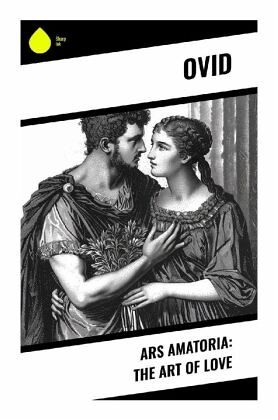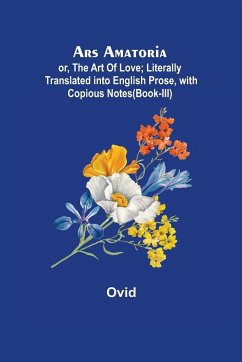
Ars Amatoria: The Art Of Love
Versandkostenfrei!
Versandfertig in 6-10 Tagen
10,00 €
inkl. MwSt.
Weitere Ausgaben:

PAYBACK Punkte
0 °P sammeln!
Ovid's "Ars Amatoria: The Art of Love" is a masterful poetic exploration of love and seduction, presented in a didactic elegiac couplet form that speaks to its Roman context and the cultural nuances of intimacy in antiquity. Structured as a guide for both men and women, Ovid deftly weaves literary playfulness with practical advice, illuminating the complexities of romantic pursuit against the backdrop of social mores. The richness of his imagery, combined with witty allusions to mythological figures, enhances the text's intricate commentary on the dynamics of love, often merging humor with phi...
Ovid's "Ars Amatoria: The Art of Love" is a masterful poetic exploration of love and seduction, presented in a didactic elegiac couplet form that speaks to its Roman context and the cultural nuances of intimacy in antiquity. Structured as a guide for both men and women, Ovid deftly weaves literary playfulness with practical advice, illuminating the complexities of romantic pursuit against the backdrop of social mores. The richness of his imagery, combined with witty allusions to mythological figures, enhances the text's intricate commentary on the dynamics of love, often merging humor with philosophical introspection. Publius Ovidius Naso, known simply as Ovid, was a pivotal figure in Augustan literature, whose personal experiences and expansive social life in Rome undoubtedly influenced his poignant and sometimes controversial poetry. His exile from Rome later in his life-often attributed to the perceived impropriety of his works-further highlights the tension between artistic expression and societal expectation, shaping a narrative that resonates throughout "Ars Amatoria." "Ars Amatoria" is highly recommended for readers interested in the intersections of love, power, and societal roles, offering both scholarly insight and entertaining prose. Ovid's timeless wisdom remains relevant, making this work an enduring classic that invites reflection on modern romantic relationships.








